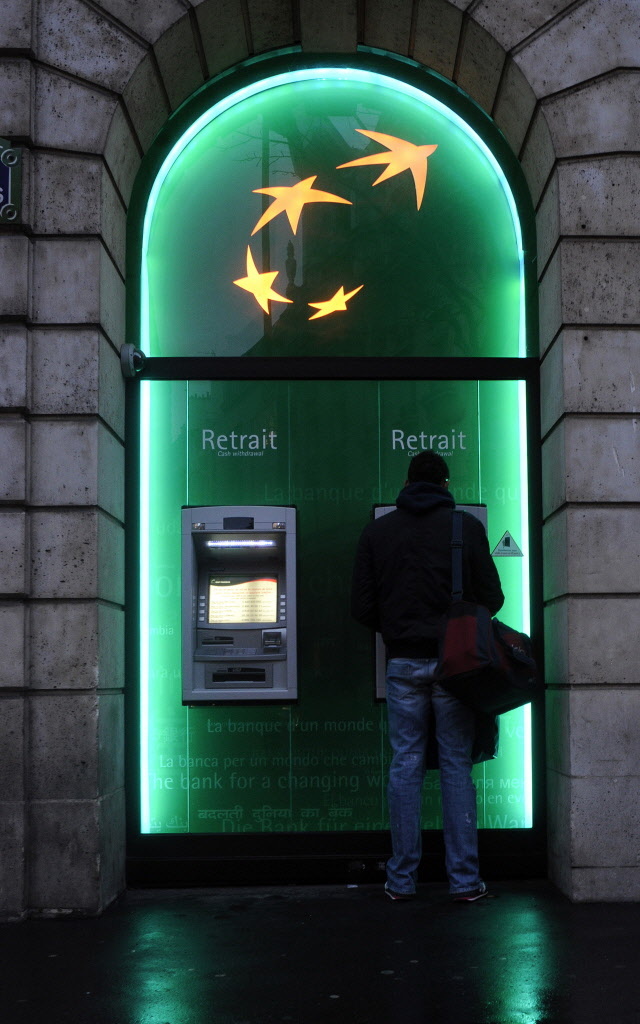PARIS (AFP) ― France, trying to minimize U.S. penalties against BNP Paribas on charges of breaking sanctions, said Tuesday that a reported $10 billion fine was excessive and warned it could damage trans-Atlantic trade talks.
The remarks from French Foreign Minister Laurent Fabius ramp up French concern at the size, manner and likely effects of the expected fine that could be imposed on the French bank.
The New York Times newspaper reported that the governor of the Bank of France, Christian Noyer, had visited top U.S. officials on the case in New York last week to warn that such a fine, equivalent to 7.4 billion euros ($10 billion), could have grave effects on the financial system.
 |
A customer uses an automated teller machine at a BNP Paribas bank branch in Paris. (Bloomberg) |
President Francois Hollande has also recently raised concerns about a plea deal with the White House, the paper wrote.
He will discuss the issue with U.S. President Barack Obama at a dinner on Thursday, a day before attending ceremonies to mark the 70th anniversary of the D-Day landings of Allied troops in Normandy, French diplomats told AFP.
Fabius, commenting on charges that BNP Paribas broke sanctions against Iran, Sudan and Cuba, said in a television interview that the figure sought by the United States was not justified.
“If there was a fault, then it is normal that there be a sanction, but the sanction has to be proportionate and reasonable. These figures are not reasonable,” he said.
France would defend the bank, he said, adding that the dispute “raises a very, very big problem.”
“Meanwhile, we are in the process of discussing a trans-Atlantic partnership with the United States.
“This trade partnership can be established only on a basis of reciprocity. But here, we would have the example of an unjust and unilateral decision.”
Finance Minister Michel Sapin warned France was “ready to react firmly to protect its fundamental interests”, if the U.S. failed to be fair in the BNP Paribas case.
“If all American authorities ― five are looking into this case ― do not treat BNP Paribas fairly, France will react firmly to protect its fundamental interests,” he said in an interview with Les Echos financial paper.
“We are not defending a bank that has admitted to something reprehensible,” he said. But he added: “We must protect the stability of France’s financial system to make sure that it can properly finance the economy.”
“What [BNP Paribas] has done is not reprehensible in France or Europe. But U.S. law is being applied.”
Shares in the bank initially rallied on the news the French government lent official support. They closed down 0.33 percent at 50.91 euros, while the Paris market was down 0.27 percent overall.
Fabius was referring to the fifth round of negotiations on a free-trade agreement between the European Union and the United States which was held in Washington on May 19.
“One cannot consider that reciprocity must be the rule if, at the same time, there is a decision like this,” said Fabius.
“Furthermore, when one looks at the role of Paribas, which is the leading European bank, the figures mentioned, which are absolutely unreasonable, could have a considerable negative knock-on effect.”








